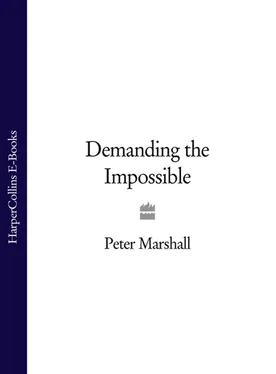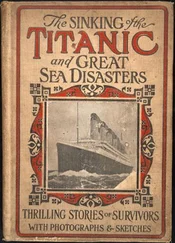Coppe was not content to preach merely but turned himself into a surrealistic work of art. He became a master of happenings. In London, he would charge at carriages of the great, gnashing his teeth and proclaiming the day of the Lord had come. He wanted to make his listeners’ ears ‘tingle’. But it was always with a subversive aim: ‘ I am confounding, plaguing, tormenting nice, demure, barren Mical with Davids unseemly carriage, by skipping, leaping, dancing like one of the fools; vile, base fellowes, shamelessely, basely, and uncovered too, before handmaids.’ 55 His supreme confidence was based on his conviction that his message came from ‘My most Excellent Majesty [in me] who is universall love, and whose service is perfect freedorne’. 56
It was all too much for the government and the Protestant Establishment. It was not enough merely to dismiss Coppe as mad; he and his fellow Ranters posed a real threat to Cromwell’s rule. The publication of the Fiery Flying Rolls prompted the government to pass an Act of Parliament against ‘Atheistical, Blasphemous and Execrable Opinions’. They were condemned by Parliament to be publicly burned. Coppe was arrested and imprisoned in Newgate prison. When brought before the Committees of Examination, he apparently feigned madness, talking to himself, and ‘throwing nut-shells and other things about the room’. 57 Obliged to recant he issued in 1651 A Remonstrance of the sincere and zealous Protestation and Copps Return to the wayes of Truth . Written in his best ranting manner, Coppe replied to his accusations, although he remained true to his social message. 58 The Wings of the Fiery Flying Roll were not entirely clipped. While denying the belief that there is no sin, he declares that all men are equally sinful in the eyes of God. Again, he reasserts that he will call nothing he has his own: ‘As for community, I own none but that Apostolical, saint-like Community, spoken of in the Scriptures … I own none other, long for none other, but the glorious (Rom. 8) liberty of the Sons of God. Which God will hasten in its time.’ 59
For all their enthusiasm and originality, the Ranters never developed into a coherent or organized movement They mainly formed loose associations or affinity groups, probably with a dozen or score of people. They drew support mainly from the lower strata of the urban poor who shared the aspirations of John Ball. The Ranters became quite numerous for a time, especially in London, and at their height there was no part of England which did not feel their influence. But their leaders were picked off in 1650 and 1651; five years later they were in serious decline. But their influence lingered on and was still strong enough in 1676 for the respectable Quaker Robert Barclay to publish an attack on The Anarchy of the Ranters and other Libertines . Fox also reported that Ranters were at work in New England in 1668.
The exact nature and influence of the Ranters is still open to dispute. The term ‘Ranter’ like anarchist today was often used in a pejorative way to describe anyone with extreme or dangerous opinions; Ranterism came to represent ‘any anti-social manifestations of the light within’. 60 To a large extent, the image of the Ranter as an immoral rascal was developed by sensationalist pamphleteers working on behalf of established Protestantism who wanted to suppress its ‘lunatic fringe’. In a similar vein, the Marxist historian A. L. Morton called them ‘confused mystical anarchists’ who drew support from ‘the defeated and declassed’ groups after Cromwell had crushed the Levellers. 61 But men like Coppe and Clarkson were far from despairing and for a time after the execution of the king it seemed possible in England that true levelling could lead to a genuine commonwealth of free and equal individuals. In the event, as in so many later revolutions, the military dictator Cromwell crushed the extreme left which had helped to bring him to power.
For all their mystical language, the Ranters expressed a wonderful sense of exuberant irreverence and earthy nonconformity. They are not only a link in the chain that runs between Joachim of Fiore and William Blake, but from peasant communism to modern anarcho-communism. They looked back to the Brotherhood of the Free Spirit of the Middle Ages and anticipated the counter-culture of this century.
9 The French Renaissance and Enlightenment
ONE OF THE CONSEQUENCES of the Renaissance, with its interest in antiquity, and the Reformation, with its stress on the right to private judgement, was a revival of anti-authoritarian tendencies in secular matters. Of all the countries in Europe in the second half of the sixteenth century, it was France that produced the most powerful libertarian thinkers. This was doubtless a response to the centralizing tendencies of the French monarchy and the growth of a strong Nation-State.
The most colourful and rumbustious French libertarian was the incomparable Francois Rabelais. An ex-Franciscan and Benedictine monk who practised and taught medicine, Rabelais came to hate monks and scholasticism. In his masterpiece Gargantua and Pantagruel (1532–64) he delighted in satirizing the religious, political, legal and social institutions and practices of sixteenth-century France. The work contains a wonderful mixture of bawdy humour, sharp satire and zest for life.
At the same time, there is a serious side to Rabelais. He adopted a form of naturalistic optimism which led him to anarchist conclusions. He believed that human nature is fundamentally good and only corrupted by our education and environment. He therefore called for the full development of our faculties ‘because free people, well-born and well-educated, keeping good company, have by nature an instinct and incentive which always encourage them to virtuous acts, and hold them back from vice.’ 1 It follows that if people are left to themselves their ‘honour’ or moral sense is sufficient to govern their behaviour without the need for any external rules or laws.
Rabelais gave flesh and blood to these abstract principles in Book I of Gargantua and Pantagntel (1534) where he describes the founding of the abbey of Thélème. Gargantua gives the abbey to Friar John (Frère Jean des Entommeures: Friar John of the Hearty Eaters) for his help in the war against the power-mad despot Picrochole, who has a ‘bitter bile’ (the meaning of his name in Greek). Friar John has all the faults of monks but none of their vices. He is ignorant, dirty and gluttonous, but also brave, frank and lusty. His abbey is built like a magnificent and luxurious country house without walls, the very opposite of a convent or monastery. Its name Thélème in Greek means ‘will’ or ‘pleasure’. The gifted and well-bred members are free to leave whenever they choose. There is no chastity, poverty and obedience: they can marry, be rich, and live in perfect freedom. They have no need for laws and lawyers, politics, kings and princes, religion, preachers and monks, money and usurers. All their life is spent ‘not in laws, statutes or rules, but according to their own free will and pleasure’. The only rule is ‘fais ce que voudras!’ (Do what you will!).
Rabelais’s ideal commonwealth anticipates the exuberant licence of Fourier’s phalansteries in which the satisfaction of all desire is considered positive and healthy. But it is primarily a Utopia for the new aristocrats of the Renaissance like Rabelais himself who looked to a society based on intelligence and knowledge rather than on power and wealth. His rebellion remains an individual and imaginative one and does not translate itself into action against the structure of society. While he opposed tyranny in all its forms, in the real world Rabelais hoped for nothing more than a peaceful and benevolent monarchy. He might have called for the freedom of noble men and women in his chivalric Utopia, but it was not until the eighteenth century that philosophes asserted the natural nobility of all free men and women. Nevertheless, Rabelais, for his exuberant and joyful celebration of freedom, deserves an honourable mention in any history of libertarian thought.
Читать дальше












